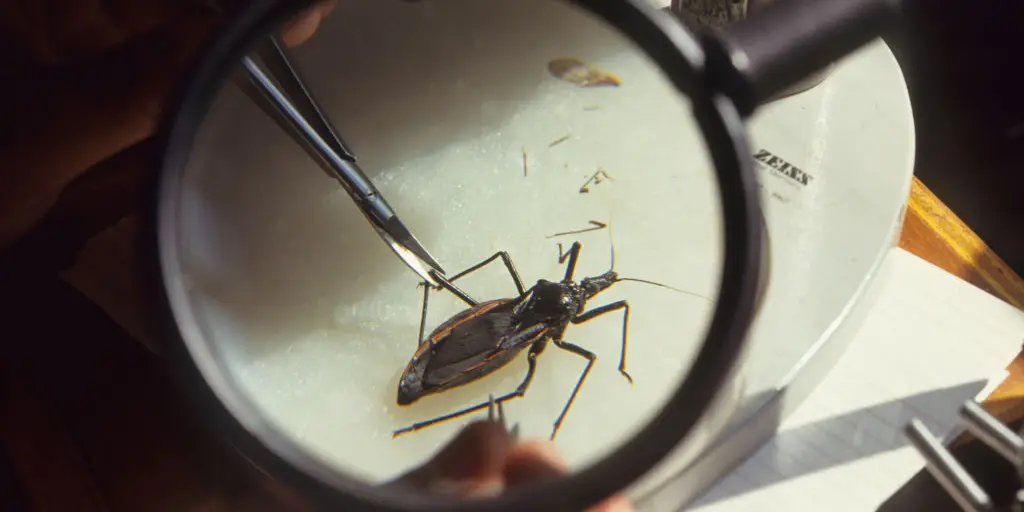By Andrew Wulfeck
Copyright foxweather

ATLANTA – Some health officials now believe Chagas disease, spread through contact with “kissing bugs,” has reached epidemic levels, requiring a new classification in the U.S. The Centers for Disease Control and Prevention reports that human cases have been documented in at least eight states, but the figure is likely an undercount due to poor surveillance. Cases involving pets and other animals have been reported in nearly half the country, with a significant concentration across the southern U.S. and in Texas. Health officials say Trypanosoma cruzi, the parasite responsible for the spread, transmits the disease through contact with the bug’s excretion. “Normally they hide during the day and become active at night when they feed on animal and human blood. They usually bite an exposed area of skin such as the face, and defecate or urinate close to the bite. The parasites enter the body when the person instinctively smears the bug’s feces or urine into the bite, other skin breaks, the eyes or the mouth,” the World Health Organization stated. WHY THE NATIONAL PARK SERVICE IS SEEKING HELP IN SEARCH FOR LARGE, YELLOW-STRIPED SPIDERS Chagas has also been known to spread through blood transfusions, organ transplants and, in some cases, from mother to child during pregnancy. Pets and wildlife are also considered extremely susceptible, making it harder to contain transmission once the parasite becomes established in an area. Health officials say the disease’s systoms are curable if treated early; however, without proper diagnosis and treatment, cardiac and neurological problems can develop. The WHO estimates that more than 7 million people worldwide are infected, with around 10,000 deaths every year. The disease was first identified during the early 1900s in South America but has since spread to Europe, North America, Africa and Asia. Most infections usually go undetected, but some victims may develop a fever and swelling, which can occur years after the initial infection. There is no known vaccine for Chagas, with doctors relying on antiparasitic drugs to help ease symptoms. FLORIDA IDENTIFIES NEXT INVASIVE SPECIES THREAT Recommended preventive measures include sealing gaps where bugs might enter a structure and treating locations where the insects might hide. According to the U.S. Food and Drug Administration, potential blood donors are also tested for the parasite that causes the disease.



